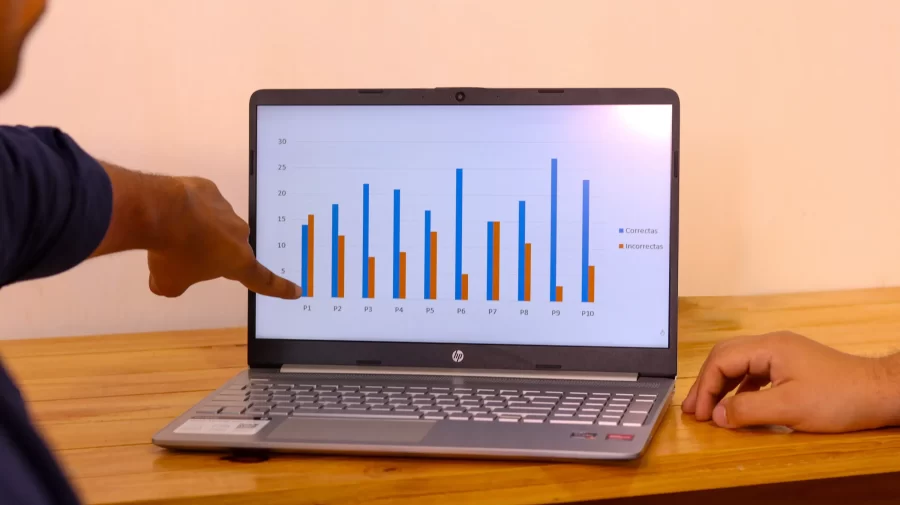Often, people may say things like: “At times, I have caught myself leaving some tasks for later, most of these turn out to be a bit complex or out of my area of expertise. Some people tell me it’s procrastination, but what is it and how can you avoid such self-sabotage?”
I’m sure at some point in your life, you have been there, the habit of procrastinating is more common than you think. A classic example of this is when you had to do some homework and you invented a thousand and one things to do to be urgent. So, you ended up doing the task very late and of poor quality, or not doing it at all.
Procrastination is often considered a negative personality trait, but it can also be detrimental to your well-being. The longer you procrastinate, the harder it becomes to get started on tasks and projects. Eventually, you may feel like you’re trapped in a cycle of unproductivity and self-doubt. It doesn’t have to be this way! By changing your habits and addressing the root causes of your procrastination, you can break this cycle.
How do you know that you are procrastinating?
Many people struggle with procrastination because they aren’t sure why they’re avoiding tasks. Identifying your motivations is a great way to address this problem. Ask yourself the following questions: Why do I find this task difficult? Why do I feel like I’m not capable of finishing it?
Why am I struggling with this task? Is it because the task is too difficult for me, or is it because I don’t feel like I have the necessary skills or experience to complete it? Once you’ve identified these underlying issues, you’ll be able to come up with a solution that addresses your specific needs. For example, if you find that a particular task is overwhelming you because you’re overwhelmed by its scope. Then you may want to break it down into smaller, more manageable pieces. Instead of trying to write an entire essay in one sitting, try spending a few hours on it each day.
What is Procrastination?

Procrastination is the act of delaying action until the last minute, even though you know that you shouldn’t put it off. It can be counterproductive in many ways.
Procrastination is a form of self-sabotage and thus self-harm. What you think is a delay of action is in reality a postponement of effort and the easy way out.
Working (in all its forms) requires concentration and effort, even for specific skills. Though, the most surprising thing in the working process is procrastination. The difference is when we do not realize we are procrastinating. While the first meets many school or professional goals, the second seems to go for free. Without any specific goal but to distract us from our responsibilities.
Between focused activity and procrastination, there is a fine line that emotional stability defines. This means that we can differentiate between low motivation times and high and stable motivation times.
When we procrastinate, we always know it’s a bad idea…
All human beings want to feel good and relaxed at work, at home, or at school. While some of these feelings may be natural for us, such as wanting to have fun and connect with others, other feelings like excitement, fear, or anxiety are caused by external factors, such as work or school assignments. Though this may be true, this does not mean we cannot change how we feel.
This contradiction between consciousness and well-being has served to argue that procrastination is irrational. Why do we do something that we are sure will injure us? This is one of the most paradoxical dilemmas of the human condition.

One of the inescapable elements of procrastination is self-awareness. Which handles both being mindful of our actions and making us think about them. In other words, awareness allows the brain to recognize that there is potential negativity when approaching a task. So it creates an alarm and compels the person to start working on it as soon as possible to prevent negative consequences.
The positive side of procrastination it’s a clear sign of the need to balance some matters about personality by gaining control over our emotions, thoughts, and actions.
Don’t follow that thread.
When we procrastinate, we are not only aware that we are avoiding the task, but also that doing so is a bad idea. And yet we still do it. Why? We know the answer lies in the uncertain nature of emotions and motivation. On the one hand, we can feel a very strong desire to do the assigned work. We can also feel that we don’t have the strength necessary to overcome our hesitation and feel motivated to get the job done. In general, feeling lazy is not something that someone is proud of. This is something we don’t want to reveal to other people because it reflects on our performance. Since we cannot easily control our feelings, we tend to ignore them and try to block them out to avoid the shame associated with laziness. Being aware of this dark side of procrastination can help us overcome it.
But precisely because of this, its explanation touches on the “dark side” of us. How our motivations and choices are not always aligned with our deeper emotional ones and subconscious drives.
Postponing it, we know will have negative consequences.
People get hooked on this irrational circle of chronic procrastination. Some people may feel the inability to manage negative moods around a task. So, are unable to push themselves to do something that they are avoiding because it feels bad and they know it will be difficult. Procrastination can increase emotional problems and create anxiety or depression as a result.
This means that procrastination is not a circumstance linked to laziness or a lack of organization. It is a resource that we use to regulate challenging emotions or negative moods, such as anxiety, insecurity, and frustration, among others.
Procrastination is the overarching factor in short-term emotional repair over long-term planned action goals. It is the immediate urge to manage negative emotions.

It’s a way you manage your chance of failure. It leads you to delay doing that task, even though you know the negative consequences of doing so. In other words, it is to some extent, the fear of failing, that you decide not to try.
If we pay attention to our procrastination moments when we do minor tasks knowing that we should be doing something important. We will realize that the emotions we experience are low self-esteem, doubt, anxiety, or insecurity. Those are combined with thoughts such as: “What if I do this but it is not good enough? What will people think? What if I do it wrong? What if others have already done this? And this is how the activity to be developed begins to seem difficult and even impossible.
This leads to a monkey mind, which I nothing but a mind that refuses to be quiet and concentrated. Also termed “procrastinatory cognitions”. As well as chronic diseases such as hypertension and cardiovascular disease.
Procrastination, an example of a present distorts
Procrastination is the perfect example of the present bias, the tendency of our minds to focus on short-term needs over long-term ones. We weren’t designed to think far into the future because we had to focus on being self-sufficient here and now.
At the neutral level, we perceive our future selves as a stranger.
When we procrastinate, there are parts of our brain that think that the suspended tasks – and the accompanying negative feelings waiting for us on the other side – are someone else’s problem. As if our ability to make deliberate decisions towards a future loses analytical tools in the face of a stressful situation.
The amygdala
The brain’s section in charge of detecting danger and ensuring our survival perceives the activity in question as a threat to our well-being. As a result, even when it’s unpostponable, our brain seeks to avoid the present danger. The result of this process is procrastination.
Procrastination is an emotional mechanism where we avoid the responsibilities of the present (not for the future or for productivity), responsibilities that for some reason we perceive as a threat.
How to stop procrastinating?
An effective way to reduce procrastination and improve concentration on what we do is, to become aware of the emotions and thoughts that go through our heads in three decisive moments:
1. When undertaking a task
2. When we feel that we are on the edge of distraction.
3. When we realize that we are procrastinating (for example, when without knowing we have already spent half an hour on social media).
At such times it is important to ask ourselves why we feel that task is a threat to us. As we become aware of the type of thoughts that a mandatory task, a duty, a challenge, etc. Awakens in us, it is necessary to begin to develop other types of mechanisms. This may help to regulate those emotions and manage them in a more adequate, functional, and useful way for ourselves.
Neither doubts nor anguish is invincible. Its fright is usually more imaginary than real. To overcome it is usually enough to face it, understand it, and step by step, leave it behind in the path of our development.
Tips to stop procrastination

1. One step at a time
One of the most common reasons for procrastination is to see that there are too many activities and too little time. That makes you feel overwhelmed and end up failing. In these cases, try to split down the tasks. Start with a small one and move forward step by step, knowing that you will finish as many tasks as possible.
2. Resist the urge to procrastinate
Some impulses are Incredibles, but they are possible to control. you may want to start by recognizing them when they come. They are usually that little idea that wants to influence you to succumb to procrastination. To resist them, you can start by forcing yourself to do a few activities, following the previous point.
3. Keep distractions away
For each person, distractions are different, your main task is to locate yours. Whether it’s social media, a person, a plant, your pet, or whatever it is that can distract you and keep you isolated from these, at least while you work. Little by little, you will see how your productivity will increase and we can move on to the next point.
4. Reward yourself when you manage to avoid it
Training your mind is like training your pet, you need positive reinforcement for positive actions. So, think about what you like, something that you consider as a way to pamper yourself. Every time you resist procrastination, finish your daily activities and reward yourself.
5. Make lists of activities
Managing lists helps you visualize the tasks you have to do during the day or week. One way you can help yourself avoid procrastination is by placing schedules and dates next to them. This way, you know you should complete it before that deadline.
What did you do?!
You make yourself conscious to eat healthy every day and go to the gym in the mornings or after work. You prepare yourself to pass that exam or for that relationship… You may work a lot to get that job you deserve, and when you are about to get it and even when you already have it, you feel and do something that screws it.
Why? Maybe a kind of anguish along with indecision or something unbearable that in the end makes you abandon the goals you are fighting for. Then, you continue the same routine as always, living the same life, without moving towards where you dream.

This is what is known as self-sabotage and includes all the actions we do to prevent us from achieving the goals we want. These are the doubts about whether we deserve it or not, if we want it, if we are ready or capable, etc.
Among the behaviors that keep us away from our dreams are procrastination, excuses, justifications, indecision, shame, doubt, and guilt… In short, when it comes to realizing your desires, you slow down, withdraw or reject them.
Although it may seem that self-sabotage keeps us away from happiness (and it does), it has its causes and function.
Let’s learn more about it. Among the most common forms of self-sabotage, we can find:
- Denying our desires and feelings
- Comparison with other people.
- Extreme sacrifice without listening to our inner needs.
- Criticism and perfectionism.
- Procrastination and excuses.
- Not knowing how to set goals or leaving things before they are finished.
- Negative language towards ourselves “I can’t”, “it’s not for me”, and “I don’t deserve it”.
What causes self-sabotage?
It originates from childhood or from stressful and painful life experiences, especially related to narcissism, values , and self-esteem.
The fear that arises when we achieve our goals or the guilt of achieving them, is hidden in our subconscious mind. In learning that we must expect worse consequences, or in the mental schemes we use to interpret reality and the world, but above all, ourselves.
Examples of causes of self-sabotage may include: overly critical or perfectionist parents both with themselves and with their children; parents who did not give value to their child’s achievements; rigid values about success, humility, sacrifice, or power; forcing too much on children’s abilities when they are not yet sufficiently developed, asking them for more than they can give do or be; devaluing the person; very high expectations; comparison and blaming by significant others; insults; identification with parents who do not value themselves or who lack goals, abilities, etc.; suffering bullying or harassment…
If we learn that we are not capable, then being capable of achieving is wrong. We learn that showing our achievements is negative or that moving forward is betraying our families. It will be very easy to fall victim to our inner critic.
What is the inner critic?
The superego, a concept developed by Freud, is a psychic structure that arises when we are socialized. We internalize norms and values to control our impulses and desires and to be able to live in society. Although the superego is a valuable part of us because it helps us relate, control ourselves and live in society, it doesn’t always have to be so positive. Some people have “superegos” that are critical, harsh, strict, punitive, and even self-hating. The superego is known in psychology by other names so we can find concepts such as over-harsh, inner voice, and deviant.
The type of message that it gives us, the “super-ego” thoughts are this: “you should do this and not that”, “you should improve”, “you are not capable”, “you can’t”, etc.
Many times, they appear in front of us to remind us of past situations that went bad… so it would be like an alarm to prevent us from failure or danger and keep us away from suffering again.
The point is that our present is not our past, but in trauma and the unconscious, there is no timing. That is why things that happened to us in childhood continue to be relived as if they happened yesterday. Although we have forgotten the causes that produced that fear or pain and that now generate the alarm. This inner voice that wants to protect us is slowing us down and self-sabotaging us.
Overcoming Self-Sabotage
Sometimes, a message given at a specific time by an important person in our present, such as a psychologist or a partner, can free us from the burdens of the past. But, the most advisable thing to do is to start changing our lives to get out of the abyss of self-sabotage.
How to overcome situations like self-sabotage?

Know your mind: Since our internal judgment works and many times it is unconscious you may want to learn how to know the way you think. Knowing a good analysis of your internal dialogue and above all, where your ideas about the world and ourselves come from. This is usually necessary to be able to move forward.
Identify your inner judge: Be aware of those messages that you give to yourself and those that keep you away from success and inner growth. Ignore them, remember that they want to protect you from something that is no longer in the present.
Establish your desires and put them in the form of specific goals: What exactly do I want in my life and what are the steps to achieve it? Although it may seem difficult at first, if a big dream is broken down into small steps it is much more achievable. Remember that time will pass anyway, so you might as well spend it getting what you want. Now, take some time to figure out what you want, if you are on your path and not trying to do what others have imposed on you.
Stop thinking, act more: Fear, guilt, excuses, and criticism will come, you’ve been living with them all your life.
Ask for advice from those who have already done it before you: being inspired by others is not copying, asking and being helped is not failing. Others have gone this route and trusted in their standards. Now don’t forget to get the best of their advice and turn that interesting idea into what you need.
At the end of the day, you have yourself to thank for any accomplishment you have made. You are the only one who can control your own actions and reactions.
It is easy to get sidetracked by procrastination or self-sabotage when you are trying to achieve a goal that is important to you. But now you know all the obstacles that are behind these reactions. By understanding them, you can address your triggers and learn to combat this habit once and for all. The feeling of wanting to just give up when trying to do something can be very discouraging. But this feeling is something that can be overcome if you understand how to avoid it.
If you are struggling with negative thoughts about yourself or if you tend to procrastinate and avoid things that are important to you or if these feelings are becoming overwhelming then you may need some help from a professional to work through these issues so that you can overcome procrastination and self-sabotage.
You can book an appointment online or call your nearest city to speak with a health professional about how to overcome these feelings. And If this is something that is happening frequently in your life or if the issue is severe enough it may be a good idea to see a doctor as well. This can ensure the stress and anxiety you are feeling do not negatively impact your overall health.






